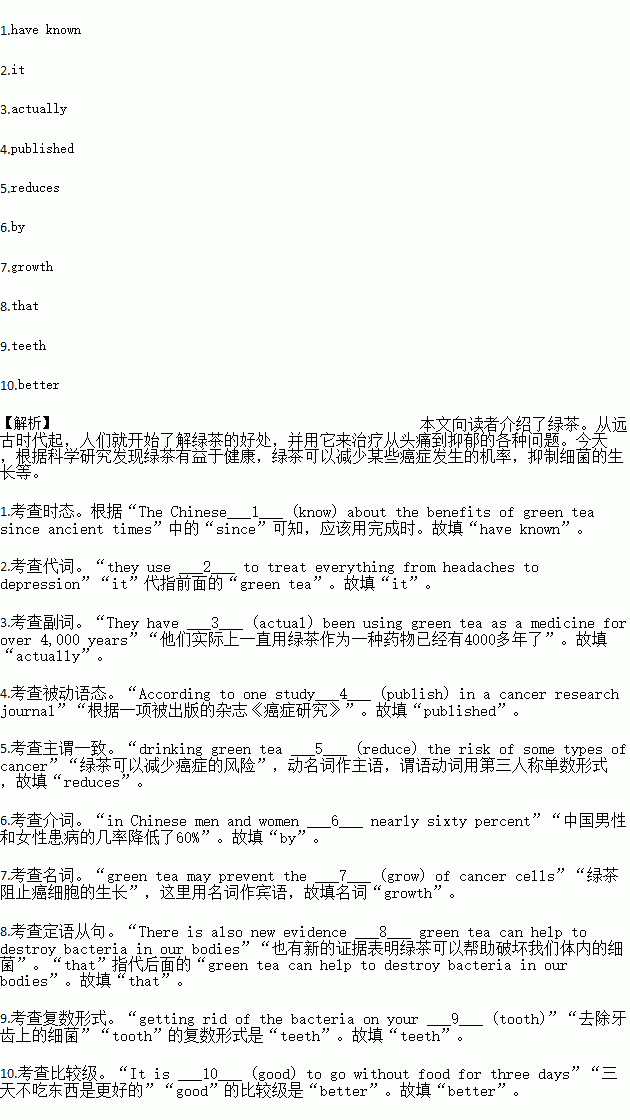题目内容
When you are thirsty, you can drink some green tea. It tastes good and it’s very healthy. The Chinese1. (know)about the benefits of green tea since ancient times, and they use2.to treat everything from headaches to depression. They have 3.(actual)been using green tea as a medicine for over 4,000 years.
Nowdadys, there is scientific evidence of the health benefits of green tea. According to one study4.(publish)in a cancer research journal, drinking green tea 5.(reduce)the risk of some types of cancer in Chinese men and women 6.nearly sixty percent. USA researchers have also found that green tea may prevent the7.(grow)of cancer cells. There is also new evidence 8.green tea can help to destroy bacteria in our bodies. It is especially effective at getting rid of the bacteria on your 9.(tooth)and keep them healthy!
According to the Chinese proverb, “It is10. (good)to go without food for three days, than without tea for one.” So, in brief, you should definitely try a cup of green tea. It seems that it can only do you good.

